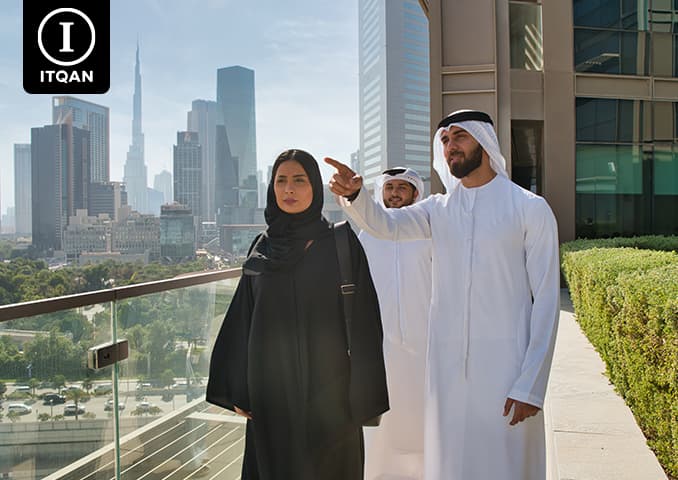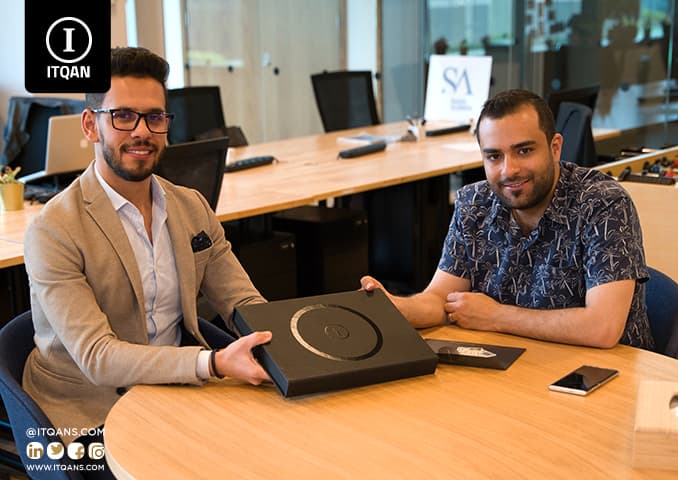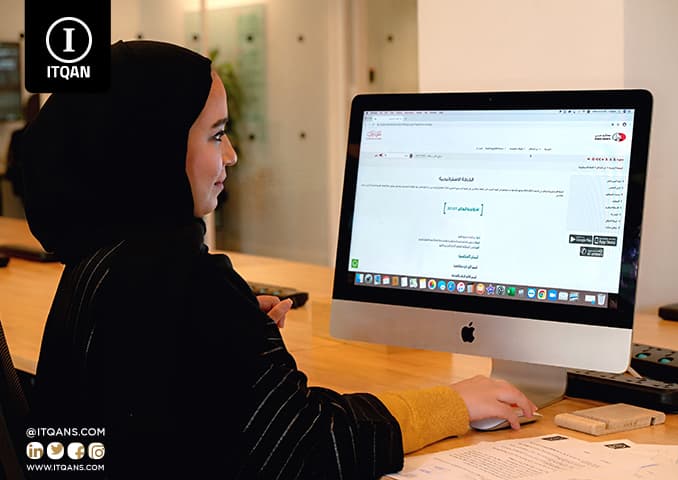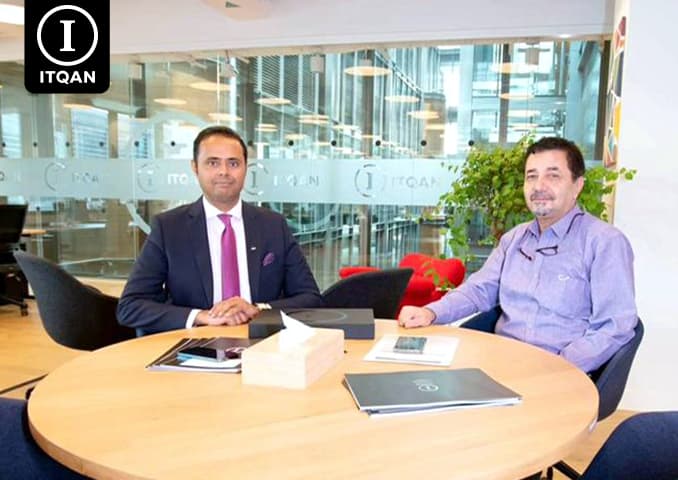Dubai is considered one of the most prominent global investment destinations thanks to its dynamic and innovative business environment. The city attracts investments from all over the world thanks to its smart economic strategies, modern infrastructure, and strategic location linking East and West. Dubai is a focal point for business, combining technological development with rapid economic growth, making it an ideal destination for investors and entrepreneurs.
Dubai has a number of advantages that enhance its attractiveness as an investment center, including the large tax exemptions provided by free zones, which encourage companies to establish and expand their businesses without a large tax burden. In addition, the city provides an open and supportive business environment, supported by a developed legal system that protects investors’ rights and promotes transparency and integrity in business transactions.
The great facilities provided by Dubai in the process of establishing companies in Dubai , including simplified procedures and speed of obtaining licenses, are among the main factors that attract investors. Moreover, Dubai provides a wide range of investment opportunities in various sectors such as technology, tourism, real estate, and finance, allowing investors to choose the field that suits their interests and goals.
In addition, Dubai provides world-class infrastructure, including modern ports and airports, and an integrated transportation network that facilitates the movement of goods and people. Given these favorable factors, Dubai is considered one of the most prominent global business destinations, where investors can explore new opportunities and achieve growth in a stimulating and prosperous environment.

جدول المحتوى
ToggleSteps to invest in Dubai
Investing in Dubai requires following structured steps to ensure compliance with laws and get the most out of the available opportunities. Here are basic steps to invest in Dubai:
- Determine the type of investment and company activity: Determine the type of investment you wish to enter into, whether it is in the field of real estate, trade, technology, or any other sector. Choose the business that fits your goals and strategy.
- Preparing a business plan: Prepare a feasibility study or comprehensive business plan detailing the business activity, market analysis, financial strategies, and future expectations. This plan is important to attract investors and obtain financing.
- Choose the type of legal entity: Choose the appropriate legal form for your company, such as a limited liability company (LLC), a branch company, or a company in a free zone. The choice depends on the type of activity and the size of investment.
- Site selection: Select the appropriate location for your project. You can choose an office in a free zone, a major commercial area, or any location that aligns with your business strategy. Ensure that the site meets legal and business requirements.
- Registration and obtaining a license: Apply for a commercial license from the Department of Economic Development (DED) or from the relevant free zone. You will need to submit required documents, such as articles of incorporation, passports, lease agreement, and business plan.
- Open a company bank account: Open a business bank account at a local bank to support your company’s financial operations. You will need to submit company documents and obtain a license.
- Visa and Residency Secure: Obtain work and residency visas for investors and employees, in accordance with local laws. Visa requirements vary based on the type of company and its activity.
- Registration for tax and legal compliance: Register your company with tax authorities if required. Ensure compliance with local laws, including anti-money laundering and anti-terrorism financing laws.
- Marketing and Promotion: Develop marketing and promotion strategies to attract customers. Use appropriate marketing channels, such as advertising campaigns, social media, and participation in trade shows.
- Start Operations and Expansion: After completing all procedures, start your business operations and monitor the performance regularly. Get ready to expand and grow based on market performance and opportunities.
Investment opportunities in Dubai
Dubai is considered one of the most prominent investment destinations in the world thanks to its strategic location and innovative economic environment. The city provides a variety of investment opportunities in Dubai :
- Real Estate: Dubai is a dynamic real estate market, where investors can benefit from the high demand for residential and commercial properties. Large projects such as “Dubailand” and “Palm Jumeirah” offer attractive investment opportunities.
- Tourism and Hospitality: Being a global tourist destination, Dubai provides strong investment opportunities in the tourism and hotel sector. Entertainment cities, restaurants, and luxury hotels represent promising opportunities for growth.
- Technology and Innovation: Dubai is witnessing significant growth in the technology sector, with a focus on artificial intelligence, the Internet of Things, and digital solutions. The city supports startups and investors in this field through business incubators and technology centers.
- Renewable energy: Dubai is a leader in renewable energy, with initiatives such as the “Mohammed bin Rashid Al Maktoum Solar City.” This sector provides opportunities for investment in solar and clean energy projects.
- Trade and retail: Dubai is an important regional commercial center and provides an ideal environment for investment in trade and retail, including major commercial centers and specialized markets.
- Industry and Logistics: With advanced infrastructure, investment opportunities in Dubai include heavy and light industries, shipping and logistics services serving global markets.
Fees associated with setting up a company in Dubai
The fees associated with setting up a company in Dubai vary based on the type of company, its activity, and the location in which it will be located. Here is an overview of the main fees that may be associated with setting up a company in Dubai:
- License fees: Includes fees paid to the Department of Economic Development (DED) or the relevant regulatory body to obtain a business license. These fees depend on the type of license and commercial activity.
- Registration fees: Fees for registering the company in the commercial registry. Usually includes initial registration fees and trade certificate issuance fees.
- Office Rental Fees: Rental costs for an office or commercial space. Rent varies based on office location and size.
- Notarization fees: Fees for documenting the articles of incorporation and articles of association at a notary or specialized offices.
- Insurance fees: Insurance costs for the office or business. It can include property and liability insurance.
- Legal consultation fees: Costs of hiring a legal advisor to prepare documents and provide legal advice on incorporation.
- Bank account opening fees: Some banks may charge fees for opening a company bank account, which includes account setup and maintenance fees.
- Special License Fees: For some businesses you may need additional licenses or permits that require additional fees.
- License Renewal Fee: A business license must be renewed annually, so be sure to factor the renewal cost into your annual budget.
- Additional fees: There may be additional fees for some services such as special permits, notarial certificates, or any additional regulatory requirements.

Advantages of investing in Dubai
Investing in Dubai offers a range of advantages that make it an attractive destination for investors from all over the world. Among the most prominent advantages of investing in Dubai :
- Stable economic environment: Dubai enjoys a stable economic environment thanks to government policies that support growth and stability. The city has a strong reputation as a global financial centre.
- Tax facilities: Dubai provides an attractive tax system that includes not imposing taxes on companies in most free zones, and not imposing a personal income tax, which contributes to enhancing investment returns.
- Facilitated regulations: Dubai offers regulatory facilities to investors, including fast and simplified company registration procedures, reducing bureaucratic burdens.
- Advanced infrastructure: Dubai has a modern infrastructure that includes world-class ports and airports, and an advanced transportation network, which contributes to facilitating business and transportation.
- Access to large markets: Dubai’s strategic location provides easy access to the Middle East, Asia and African markets, making it an ideal starting point for regional and international expansion.
- Innovation and Technology: Dubai supports innovation and technology, and provides an ideal environment for emerging technology companies through incubators and research centers, which enhances investment opportunities in this sector.
- Political and security stability: Dubai provides a high level of political and security stability, which enhances investor confidence and reduces risks.
- Mature financial markets: Dubai has well-developed financial markets, including financial exchanges and regulatory standards in line with international standards.
- Developing tourism sector: Being a global tourist destination, Dubai offers great investment opportunities in the tourism, hospitality and entertainment sectors.
- Qualified workers: Dubai provides a group of educated and trained competencies that contribute to enhancing the competitiveness of companies and investment projects.
In conclusion, it is clear that investing in Dubai provides unlimited opportunities in an advanced and prosperous business environment. Dubai combines an excellent strategic location, modern infrastructure, and supportive government policies that make it one of the most prominent investment destinations in the world. Thanks to economic and sector diversity, investors can find promising opportunities in areas such as real estate, technology, tourism, and financial services, allowing them to achieve attractive returns and sustainable growth.
Investing in Dubai is not just a business operation, it is an investment in Dubai’s prosperous future. The emirate provides several benefits, including tax exemptions, a flexible business environment, and advanced legal facilities, which enhance companies’ ability to expand and achieve success. Transparent and advanced regulatory frameworks also contribute to protecting investors’ rights and enhancing confidence in the market.
As Dubai continues to develop its major projects and improve its infrastructure, the emirate remains at the forefront of innovation and progress, which opens up a wide horizon of new opportunities for investors. By studying the market in depth and understanding investment trends, investors can benefit from Dubai’s rapid growth and achieve their business goals.
The most important frequently asked questions about investing in Dubai
Can foreign investors fully own companies in Dubai?
In free zones, foreign investors can fully own companies. In non-free zones, a local partner who owns a share of the company may be required.
What are the tax advantages of investing in Dubai?
Dubai offers tax benefits including no personal income tax, tax exemptions in free zones, and limited corporate taxes in some cases.
What financing opportunities are available to investors in Dubai?
Funding opportunities include funding from local banks, venture capital investors, angel investors, government funding programs and initiatives supporting startups.
How can I open a bank account for my company in Dubai?
You need to submit company documents such as license, articles of incorporation, passports for investors and directors, and business plan. Account opening requirements vary between banks.
What are the residency and visa requirements for investors and employees in Dubai?
Work and residency visas are required for investors and employees, based on Dubai’s residency and labor laws.


















